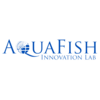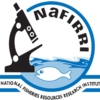
June 2018
Common Fisheries Policy
1. EU Fisheries Ministers discuss new EMFF subsidies and simplified fisheries controls
2. Commission reviews CFP implementation and sets agenda for 2019 TACs and quotas
3. Commission proposes Maritime and Fisheries subsidies of €6.14 billion (2021-2027)
4. The European Parliament Fisheries Committee holds public hearing on EMFF
5. EU and some Black Sea states pledge to rebuild the fish stocks
6. ICCAT announced discards ban in Atlantic tuna fishery
7. North Atlantic Salmon Conservation Organisation sets TAC for Greenland
8. Commission corrects fishing zones coordinates for EU vessels in Mozambique
9. EUMOFA publishes reports on Deep-water rose shrimp and European seabass
10. Stop fishing notices for skates, rays and blue marlin
11. Commission launches public consultation on fleet entry-exit scheme
12. EU amends some 2018 TACs and quotas; catch of whale shark prohibited
13. European Economic and Social Committee endorses Baltic herring plan
14. Commission publishes Annual Economic Report on EU Fish Processing
15. Commission rejects Turkish call for review of anti-subsidy duties on trout
16. Experts meet to discuss blue growth and the EU's Outermost Regions
17. Commission publishes new version of European Atlas of the Seas
18. World Oceans Day celebrated on theme of preventing plastic pollution
Fish hygiene
19. Rapid alerts were notified for 51 consignments of fishery products
20. DG SANTÉ publishes audit report on Brazil; no controls on fishing/freezer vessels
21. DG SANTÉ publishes audit report on Morocco; some hygiene/HACCP deficiencies
22. Commission proposes changes to PAH derogations for traditional smoked products
23. Commission rejects compulsory reporting of effect of consumption advice on mercury
24. EU to require labelling of country of origin of the primary ingredients from 2020
25. New IHN and VHS disease free status for Ganzeville river basin, France.
Common Fisheries Policy
1. The EUs Agricultural and Fisheries Ministers met to discuss several fisheries policy initiatives. The Commission presented its proposal for a new European Maritime and Fisheries Fund (EMFF) worth €6.14 billion to invest in the maritime economy. The Commission also presented proposals for simplifying and improving existing measures on fisheries control measures, to reduce administrative burdens, for example using e-solutions. The Commission also presented its proposals for the fixing total allowable catches (TACs) and national quotas for 2019. TACs for the Baltic Sea will be set in October, for deep sea species in November, and for the North Sea in December 2018.
2. The European Commission reviewed the implementation of EU's Common Fisheries Policy, in terms of the objective of reaching maximum sustainable yield (MSY) by 2020 at the latest. In northern and western waters biomass of managed fish stocks in 2016 on average was nearly 39% above 2003 levels, but in the Mediterranean and the Black Seas fisheries management "remains challenging" due to the multispecies nature of fisheries, the fact that several fish stocks are shared with third countries and the low number of fish stocks assessed yearly by scientific bodies. On the basis of the findings, the Commission launched a public consultation on the State of Play of the Common Fisheries Policy and Consultation on the Fishing Opportunities for 2019, which will launch the process of agreeing fishing opportunities for 2019. This is available at:
https://ec.europa.eu/info/
3. The Commission proposed a new European Maritime and Fisheries Fund (EMFF), worth €6.14 billion, to invest in the maritime economy, for the next long-term EU budget period 2021-2027. The proposed fund will continue to support the European fisheries sector towards more sustainable fishing practices, with a particular focus on supporting small-scale fishermen. For the first time, EU funds will also contribute to strengthening international ocean governance for safer, cleaner, more secure, and sustainably managed seas and oceans. Measures to protect marine ecosystems are proposed to have a significant allocation, with 30% of the budget, targeted at climate change mitigation and adaptation, in line with the EU's commitments under the Paris Agreement.
4. The European Parliament Fisheries Committee held a public hearing to review the implementation of the current EMFF since 2014. Various experts delivered presentations and debated outcomes with the PECH Members, along with perspectives of the EMFF after 2020. Key experts presenting evidence were Ms Carmen Gallego Calvar (working with Spanish Fisheries Producers Organisations), Ms Flaminia Tacconi, ClientEarth, Ms Maria Eduarda Oliveira, advisor to the Regional Secretary for Sea, Science and Technology of the Government of the Azores and Mr Javier Garat, Association of National Organizations of Fishing Enterprises.
5. At a Ministerial Conference in Sofia, and following months of discussions, the European Commission and the General Fisheries Commission for the Mediterranean (GFCM) secured a pledge from some Black Sea countries to rebuild the Black Sea fish stocks over 10-years, protect the region's ecological and economic wealth and boost the development of sustainable Black Sea aquaculture. The so/called Sofia Declaration was signed by Black Sea ministerial representatives from Bulgaria, Romania, Georgia, Moldova, Turkey, together with the European Commission. Ukraine and Russia declined to sign. The initiative is in line with the EU strategy to establish a new dynamic in multilateral fisheries governance in the Black Sea through the GFCM, on the basis of commonly agreed principles set out in the #MedFish4Ever Declaration signed in Malta in 2017. Commissioner Karmenu Vella, responsible for the Environment, Fisheries and Maritime Affairs, said: "While I congratulate everybody on the signature, I also stress that the real success must be measured by its implementation".
6. Following the 25th Meeting of the ICCAT Commission, the Executive Secretary announced that a number of decisions regarding the management of Atlantic tunas will enter into force effective from 11 June 2918. Notably this includes a prohibition on discards from purse seiners targeting tropical tunas.
7. During its 35th Annual Meeting held in Portland, Maine (USA), on 12 and 15 June 2018, the North Atlantic Salmon Conservation Organisation (NASCO) adopted new regulatory measures for salmon fisheries around the Faroe Islands and off West Greenland. The measure applying to the Faroe Islands maintains the previous zero catch. A new regulatory measure for West Greenland sets, for the first time, an agreed annual Total Allowable Catch (TAC) of 30 tonnes for the period 2018-2020 (compared to a previous autonomous annual quota of 45 tonnes declared by Denmark.
8. The Commission has issued a correction to the spatial coordinates of fishing zones defined in the Protocol to the EU Mozambique Fisheries Partnership Agreement.
9. The European Market Observatory for Fisheries and Aquaculture Products published its latest edition of 2016, containing articles on First sales in Europe of Deep-water rose shrimp (Italy, Portugal, Spain), Norway lobster (Denmark, France, the UK), Consumption of European seabass in Italy, Portugal, Spain, and the UK and Fisheries and aquaculture in Bulgaria and Romania.
10. Stop fishing notices were published by the Commission due to exhaustion of quota by Danish vessels fishing for skates and rays and Portuguese vessels fishing for blue marlin in the Atlantic Ocean.
11. The Commission launched a public consultation, in the form of an online questionnaire, on the implementation of the fleet entry-exit scheme (being a key feature of the management of the fishing capacity and effort of the EU fleet). Persons with an interest are invited to share their views at:
https://ec.europa.eu/info/
12. The EU amended the 2018 TACs and quotas for 2018 for certain fish stocks and groups of fish stocks applicable in Union waters and, for Union vessels, in certain non-Union waters. Catch of whale shark (Rhincodon typus) is now prohibited. Following scientific advice, new TACs are set for Northern prawn, megrim, sprat and pout. New TACs for jack mackerel are also set by the South Pacific Regional Fisheries Management Organisation (SPRFMO).
13. The European Economic and Social Committee endorsed the Commission's proposals for a fisheries management plan for certain herring stocks in the Baltic Sea. It offered no comments.
14. The European Commission published the latest Economic Report of the EU Fish Processing sector, analysing the performance of the sector in 2015. The sector's turnover, which came very close to the €30 billion mark with gross value added, i.e. its contribution to the economy through wages and gross profit, of nearly €6 billion. Total employment remained relatively stable over the 2008-2015 period, totalling 126,413 people in 2015 - 45% of which were women. Over the same period wages increased by 22% and the average annual salary was €30,133 per full time equivalent. Commenting on the report, Commissioner Vella said: "Further proof that with the good health of the living resources comes a dynamic maritime economy".
15. The Commission published a decision following a review requested by the Government of Turkey of the direct subsidies provided to national producers of rainbow trout. The review found that that a claimed decrease in subsidy established between 2013 and 2016 was only of a temporary nature, and that the subsidy rates in 2017 and 2018 were comparable to those in 2013. Furthermore, since the system of subsidy measures is constantly changing, such changes cannot be deemed to be of a lasting nature. As a result the review process is terminated, and the countervailing duties applied to EU imports of rainbow trout originating in Turkey will remain in place.
16. Over fifty experts from the EU's Outermost Regions met in Brussels to discuss how the blue economy can help give a new, sustainable impetus to their economies. The meeting was designed to follow-up on the publication of a new study by the European Commission "Realising the potential of the Outermost Regions for sustainable blue growth". The report recommends a new strategy towards the outermost regions, which traditionally has focused been on fisheries and tourism, but should expand in future to encompass other areas of blue growth, such as energy and algae-based biotechnology. European Commissioner for Environment, Maritime Affairs and Fisheries Karmenu Vella said: "The blue economy can become one of the powerhouses for the EU economy in general. Surrounded by the ocean and amidst a wealth of natural assets, the outermost regions could be first in line to take advantage of this trend."
17. The Commission announced that an improved version of the online European Atlas of the Seas is now available, which allows spatial mapping of many additional variables, including nature, tourism, security, energy, passenger transport, sea bottom, sea level rise, and fish consumption. The Atlas aims to raise awareness of Europe's seas and coasts in the context of the EU's integrated maritime policy. Data providers are primarily the European Commission and its agencies (i.e. EEA, Eurostat and the European Marine Observation and Data Network (EMODnet), which provided about 80 new maps. The Atlas is available at:
http://ec.europa.eu/
18. On the occasion of World Oceans Day, Mr.Karmenu Vella, Commissioner for Environment, Maritime Affairs and Fisheries published a statement highlighting the importance of the oceans for our wellbeing and for the wellbeing of future generations. The theme of the 2018 World Oceans Day is "Preventing plastic pollution and encouraging solutions for a healthy ocean" and the Commissioner highlighted some of the initiatives launched by the EU in this respect.
Fish hygiene
19. During June 2017 there were 51 rapid alert notifications for fishery products. There were 13 rapid alert notifications for bivalve mollusc products, 6 rapid alert notifications for cephalopod products, 2 rapid alert notifications for crustacean products, 27 rapid alert notifications for other fishery products and 3 rapid alert notifications for gastropod products. These included 3 consignments of live clams from Italy, 3 consignments of chilled squid from Spain, 3 consignments of chilled swordfish from Chile and 3 consignments of live snails from Morocco.
20. The European Commission DG SANTÉ published the findings of an audit mission to Brazil in September 2017 to evaluate the control systems in place governing the production of fishery products intended for export to the European Union and following up on a previous mission in 2012. The mission found that whilst the control system should be capable of providing adequate assurance that fishery products meet many of the requirements set out in the European Union health certificate, in fact there was no inspection or control of primary production, neither on fishing and freezer vessels nor at landing sites. In addition, serious shortcomings were found in the listing of non-eligible establishments and there was a manifest failure to detect and/or act on serious non-compliances in a significant number of establishments visited. The Commission has requested the Brazilian Competent Authority, the Department of Inspection of Products of Animal Origin under the Ministério da Indústria, Comércio Exterior e Serviços to submit a plan of corrective actions for the consideration. In the meanwhile, Brazil has voluntarily suspended the export of fishery products to the EU.
21. The European Commission DG SANTÉ published the findings of an audit mission to Morocco in December 2017 to evaluate the control systems in place governing the production of fishery products intended for export to the European Union. The mission found that overall, the official controls implemented by the competent Moroccan authorities to the whole chain of production of fishery products were considered as satisfactory. In some cases, an insufficient number of staff to ensure all tasks within the prescribed time frame was noted. Deficiencies were also identified in structures in one establishment, and there were some defects found in HACCP implementation in in two other establishments. Recommendations were made to correct the deficiencies identified.
22. The Commission has proposed amendments introducing derogations for traditional products, as regards the maximum levels for PAHs in traditionally smoked meat and meat products and fish and fish products. Further discussions will take place in future.
23. With regards to Mercury levels in fishery products, the Commission reported on discussions in the Working Group Meeting on Industrial and Environmental contaminants of 27 March. A Member State had suggested it necessary to include a requirement for reporting on the effectiveness of the consumption advice for fish on a mandatory basis. However, the Commission considered that such reporting would be mainly of relevance for countries with high consumption of predatory fish and that therefore this reporting should be done on a voluntary basis.
24. The Commission adopted an implementing regulation setting new requirements for food labelling in respect of the country of origin of the primary ingredient of a food in cases where this is not the same as the given country of origin or the given place of provenance of the food. Origin must be given in relation to EU/Non-EU, or in the case of capture fishery products, in relation to FAO fishing area or sea or freshwater body. Specifications are provided as to the visibility of the declaration. The requirement shall apply from 1 April 2020.
25. The Commission was informed of a declaration from France on disease free status for viral haemorrhagic septicaemia (VHS) and infectious haematopoietic necrosis (IHN) of a zone of the Ganzeville river basin.












Comments (0)
Login or Register to add a comment